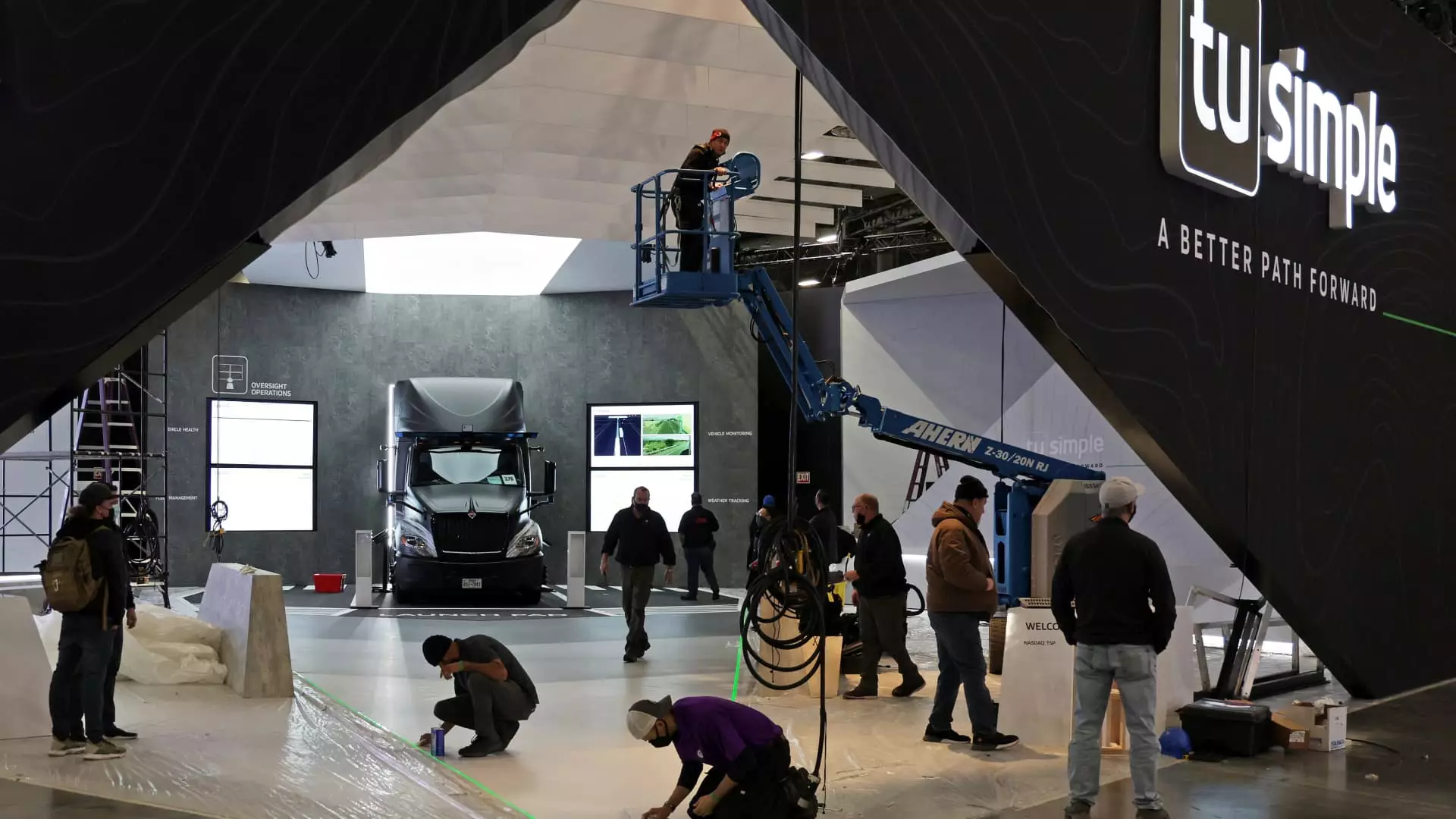In a landscape marked by rapid innovation and tumultuous shifts, TuSimple has undergone a significant transformation, rebranding itself as CreateAI. This strategic pivot was announced recently, signifying a bold departure from its initial focus on autonomous trucking, redirecting its efforts towards the lucrative arenas of video games and animation. As the automotive industry sees casualties like GM’s shuttering of the Cruise robotaxi division, CreateAI seeks to redefine its identity and future trajectory amidst a challenging backdrop.
The autonomous vehicle sector, once heralded as the vanguard of technology, has begun to shed its less viable contenders. TuSimple, which once operated across both the U.S. and Chinese markets, faced multiple setbacks that culminated in this major rebranding. The company’s history of vehicle safety concerns, a substantial securities fraud lawsuit which drained it of $189 million, and its subsequent delisting from Nasdaq in February 2023, painted a grim picture of its prospects in the self-driving domain. As the firm embarks on its new journey, it is critical to analyze whether this pivot away from trucking represents a genuine opportunity for growth or merely an escape from inevitable failure.
Under the leadership of CEO Cheng Lu, who returned to the helm after a period of tumult, the restructured company has set ambitious goals. CreateAI aims to break even by 2026, propelled largely by a video game adaptation of Jin Yong’s renowned martial arts novels. Lu’s vision is optimistic, forecasting “several hundred million” in revenue by 2027 when a full version of the game is expected to launch. However, this optimism clashes with the company’s previous financial reports, which indicated losses of $500,000 during the initial three quarters of 2023, despite hefty research and development expenditures of $164.4 million. Such numbers raise questions about the viability of these projections and the underlying assumptions that support them.
Unleashing AI Potential for Animation and Gaming
A striking aspect of the rebranding effort is CreateAI’s claim to leverage its experience in autonomous driving software to develop generative AI applications. This includes the introduction of Ruyi, an open-source AI model for visual work, marking the company’s serious foray into the competitive field of generative AI—a technology currently dominating discussions surrounding artificial intelligence, evidenced by its role in the functioning of tools like ChatGPT. The ambition to harness AI for video game production is particularly noteworthy; Cheng suggests that costs could be reduced by an astonishing 70% over the next five to six years. Still, such predictions hinge on several uncertain variables, including the actual efficiency gains from AI integration, market fluctuations, and competitive responses.
Building Alliances: Animation and Collaborative Potential
Even as it sheds its old identity, CreateAI has not been idle in seeking partnerships. In August, while still operating under the TuSimple name, it announced a collaboration with Shanghai Three Body Animation, focusing on the dual development of an animated feature film and a video game inspired by the acclaimed science fiction series “The Three-Body Problem.” This partnership illustrates a clear intent to anchor its future in creative storytelling, which could resonate well with a broad audience, enhancing the potential to tap into established fandoms. However, questions remain regarding the execution of these projects and whether they can attract sufficient investment and audience interest to sustain the company.
The rebranding comes at a time when U.S.-China relations are tenuous, particularly concerning technological exchanges. When questioned about restrictions imposed by the U.S. government, which have tightened around advanced semiconductors, Cheng dismissed the potential impact, claiming a diversified approach to cloud computing resources. Still, skepticism prevails, and the broader implications of geopolitical tensions may pose unforeseen challenges as CreateAI attempts to carve a niche in the global market.
CreateAI’s rebranding from TuSimple symbolizes more than just a shift in name; it reflects a desperate attempt to reinvent itself within a landscape fraught with competition and uncertainty. While the ambitions set forth are audacious and could potentially lead to a renaissance in creativity and technological integration, the path ahead is littered with obstacles. The efficacy of its new strategies, the effectiveness of partnerships, and the reception of its forthcoming projects will ultimately determine whether this transformation is a successful metamorphosis or merely a momentary detour into the unknown.

